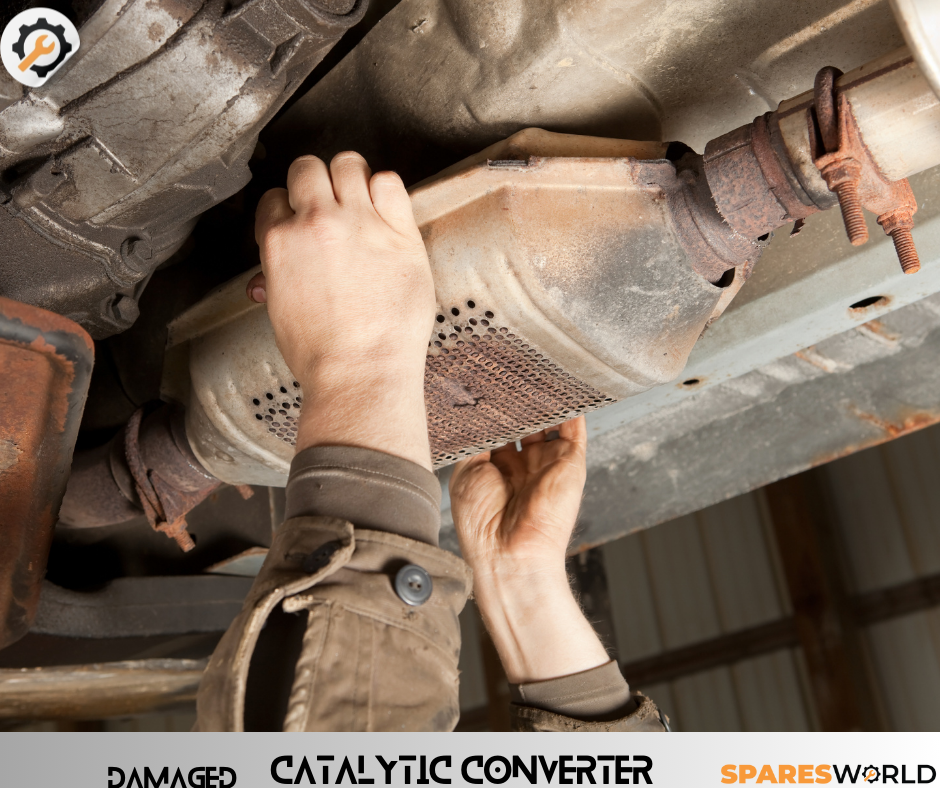How a Clogged Catalytic Converter Can Wreck Your Car’s Performance – What You Need to Know

Your car’s catalytic converter may be tucked away beneath your vehicle, but don’t let its hidden position fool you—it’s a vital component that keeps your car running efficiently and cleanly. This small device transforms harmful exhaust gases into less dangerous emissions, but when it gets clogged, it can spell disaster for your engine’s performance and fuel efficiency. Ignoring a failing catalytic converter can lead to costly repairs, and worse, it can leave you stranded at the most inconvenient times.
What Exactly Is the Catalytic Converter?
The catalytic converter is part of your car’s exhaust system and serves as a cleaner for the gases produced by combustion. It converts harmful pollutants like carbon monoxide and nitrogen oxides into safer compounds like carbon dioxide and water vapor. This process is critical for reducing your vehicle's emissions and helping it meet environmental standards.
But over time, the catalytic converter can become clogged with debris, carbon buildup, and unburned fuel. When this happens, it no longer effectively filters exhaust gases, causing back pressure in the engine, leading to a cascade of problems.
The Telltale Signs of a Clogged Catalytic Converter
Knowing when your catalytic converter is failing can save you from serious engine damage. Here are the key symptoms of a clogged converter you should never ignore:
-
Poor Acceleration and Engine Performance One of the first signs of a clogged catalytic converter is a noticeable drop in engine power. You may find that your car struggles to accelerate, especially when going uphill or trying to pass other vehicles. This is because the exhaust gases can’t escape, leading to reduced engine efficiency.
-
Decreased Fuel Efficiency A clogged converter forces your engine to work harder, burning more fuel in the process. If you notice that your car’s fuel economy has suddenly taken a nosedive, the catalytic converter could be to blame. This inefficiency will continue until the blockage is addressed.
-
Check Engine Light The infamous check engine light could be triggered by a failing catalytic converter. Your car’s computer monitors the exhaust system and can detect when the catalytic converter isn’t working properly. If you see that light flashing on your dashboard, it’s time to run a diagnostic test to pinpoint the issue.
-
Rattling Noises from the Exhaust If you hear strange rattling sounds coming from your exhaust system, it could be a sign that the catalytic converter is damaged. As the internal components deteriorate, they can break apart and cause a rattling noise, particularly when you start the car or accelerate.
-
Sulfur or Rotten Egg Smell A healthy catalytic converter effectively neutralizes exhaust fumes, but when it’s clogged or failing, you might notice a sulfuric or "rotten egg" smell. This odor is a clear sign that harmful gases aren’t being converted properly and are building up in the exhaust system.
Why Ignoring a Clogged Catalytic Converter Is a Big Mistake
Driving with a clogged catalytic converter isn’t just bad for your car—it’s bad for the environment and your wallet. Here’s why you need to take action quickly:
-
Severe Engine Damage: If your catalytic converter remains clogged for too long, it can cause back pressure that can seriously damage your engine. The excessive heat buildup can warp internal components, leading to expensive repairs or even engine replacement.
-
Failed Emissions Tests: In most regions, passing an emissions test is a requirement for vehicle registration. A faulty catalytic converter can cause your car to fail these tests, making it illegal to drive until you get it repaired.
-
Dangerous Driving Conditions: A clogged catalytic converter can also lead to stalling or even a complete engine shutdown while you’re driving. This can be dangerous, especially if it happens on a busy road or in difficult driving conditions.
How to Fix a Clogged Catalytic Converter
If you suspect that your catalytic converter is clogged, you have a few options to fix the problem. Here’s what you can do:
-
Try a Catalytic Converter Cleaner: There are special fuel additives designed to help clean out carbon deposits from the catalytic converter. This may help if the blockage is minor, but it’s not a guaranteed solution.
-
Replace the Catalytic Converter: If the damage is more severe, the only solution may be to replace the catalytic converter entirely. While this is more expensive, it will restore your car’s performance and fuel efficiency, saving you money in the long run.
-
Regular Maintenance: Prevent future clogs by keeping up with routine maintenance. Regular oil changes, using the right fuel, and keeping an eye on your engine’s performance will help extend the life of your catalytic converter.
Keep Your Car Running Clean and Efficient with Sparesworld
Don’t let a clogged catalytic converter bring your car to a grinding halt. At Sparesworld, we offer top-quality catalytic converters and other exhaust system components that can help you restore your car’s performance and reduce harmful emissions. Need help diagnosing the issue? Our experts are ready to provide professional advice and the best parts to keep your vehicle running at its best.
Keep your engine healthy, reduce emissions, and save fuel by addressing catalytic converter problems before they escalate. Visit Sparesworld today for all your car care needs!

 Loading..
Loading..